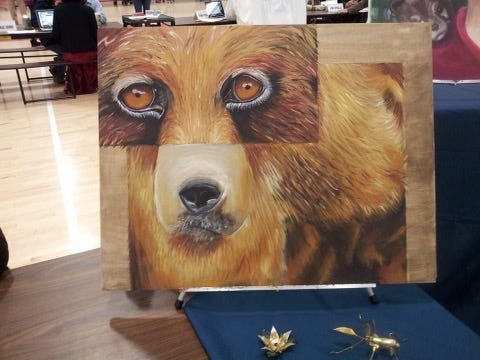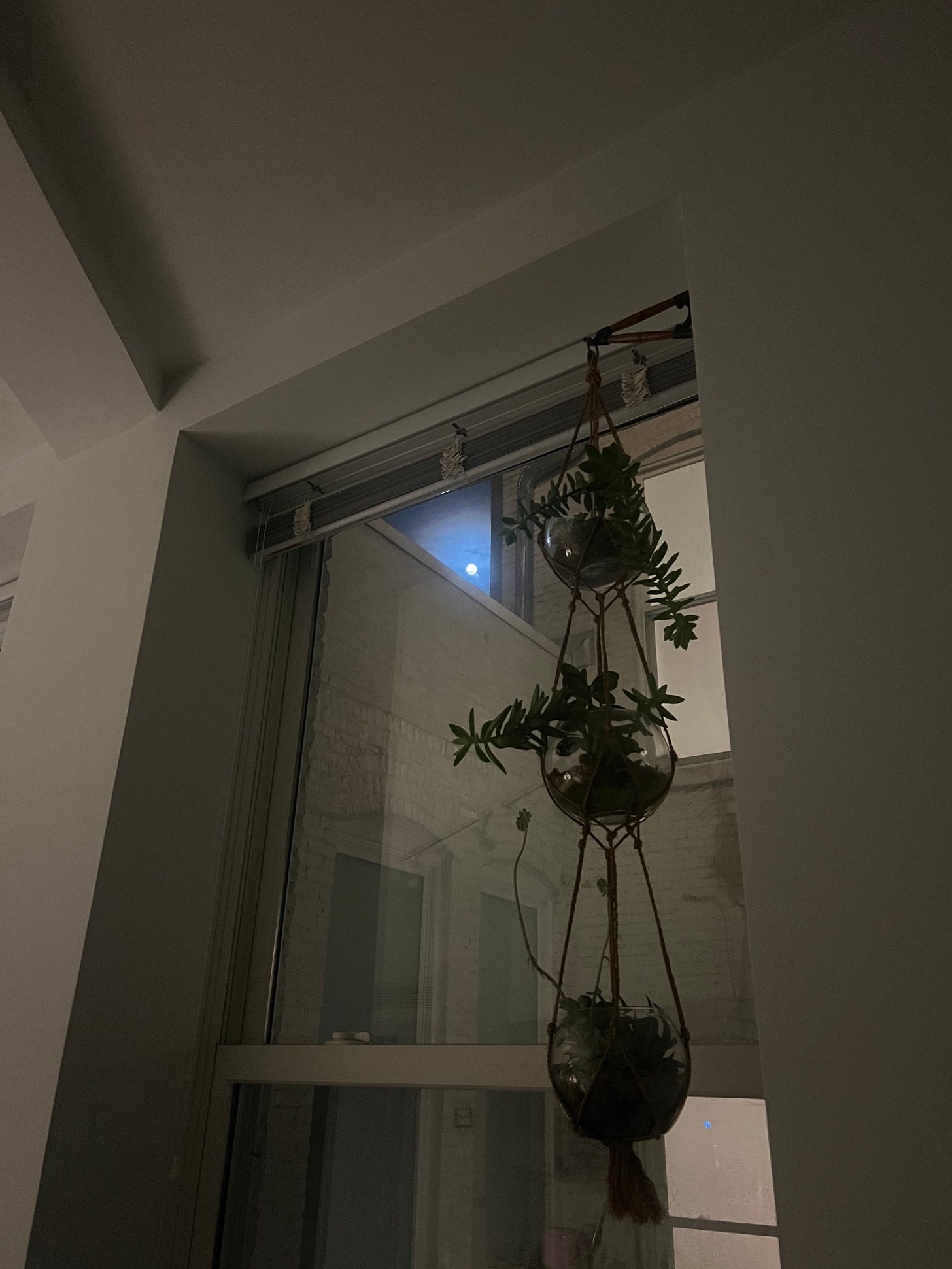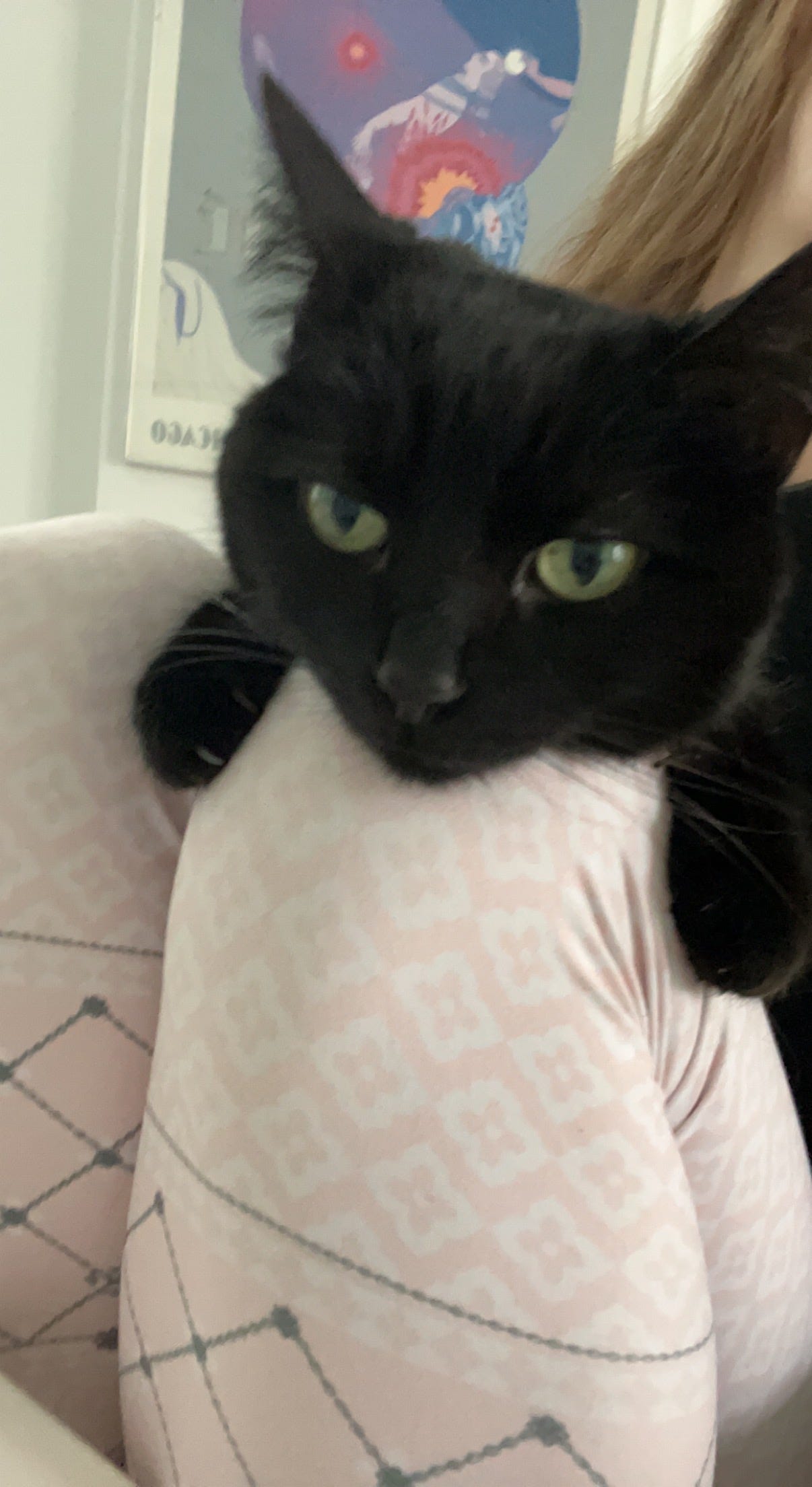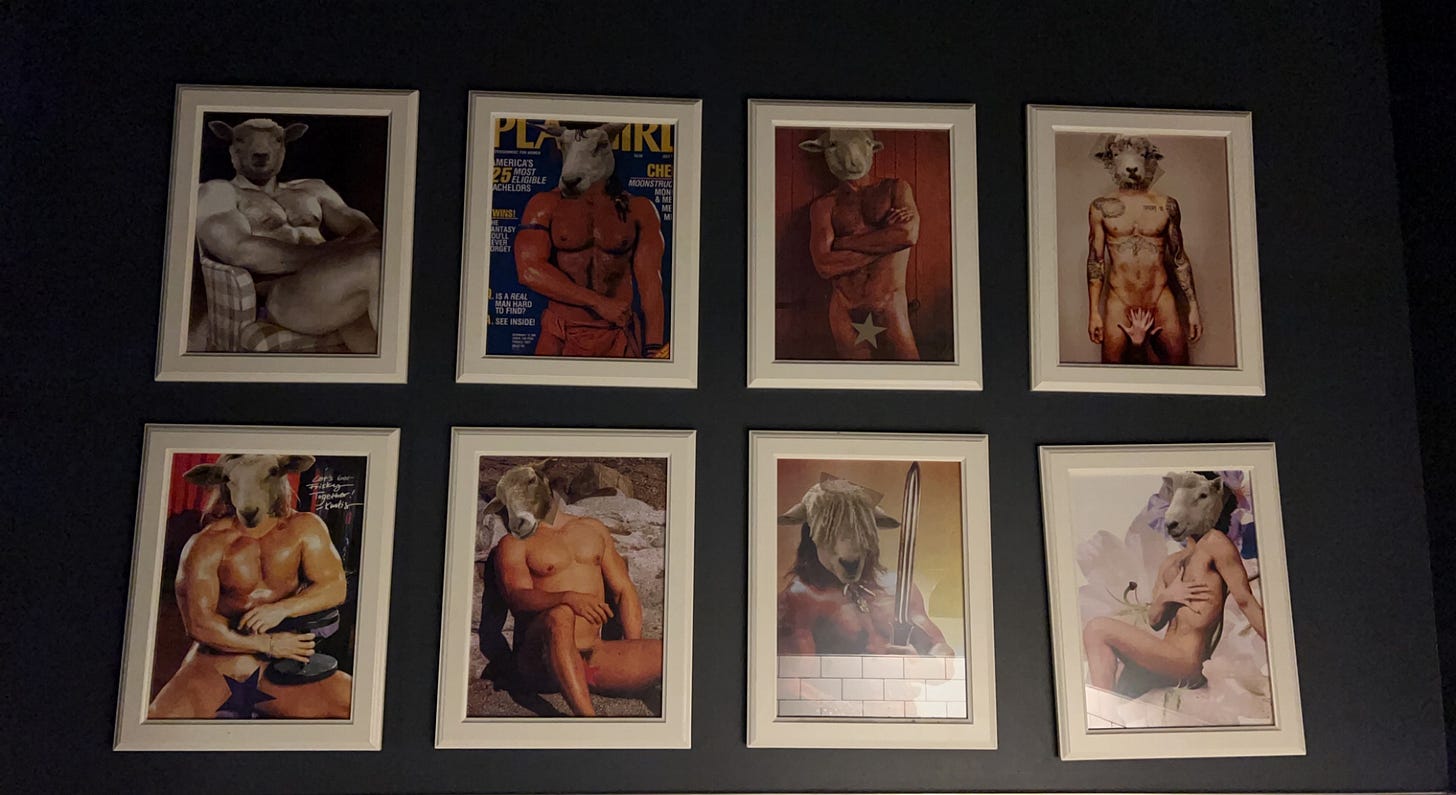Throughout my four-year high school career, I saw countless changes to the ways in which they tried to educate us. I watched a switch from semesters to trimesters after my freshman year, a battle over eliminating final exams, the introduction of daily objectives announced at the beginning of each class, and the addition of a yearly theme. The idea of a yearly theme — an intention that the school wanted us, as students, to take from class to class throughout the school year — was introduced on the first day of my senior year. Ever the cynic at seventeen, I mentally scoffed at the theme administration had chosen: Growth Mindset.
We were introduced to Growth Mindset as part of the syllabus of whatever our first class of the day happened to be. For me, it was painting, led by a teacher who remains, to this day, one of my favorites. This teacher was everything you would expect an art teacher to be — thoughtful, creative, nurturing, gentle — quite the opposite of the cynical personality I spent most of high school developing (which would go on to undoubtedly be a contributing factor to my eventual departure from the field of elementary education). She took every rule seriously and somehow felt like a sister, a grandmother, and an educator to me all at the same time, which only strengthened my desire to earn her approval. If she had not been the teacher to introduce Growth Mindset to me and remind me of it throughout the year, I doubt it would have stuck as long as it did.
The idea behind Growth Mindset was to challenge the thought pattern that suggests that we cannot do hard things just because we are bad at them the first time we try them. Our assignment for the year was to follow “I can’t” statements with “yet.” For months, the teachers chased us around, barking “yet!” after any sentence that started with “I can’t,” until it started to make its way into our vocabularies. Adding this simple word to the end of a sentence was supposed to reinforce the idea that just because we might lack in skill now, we always had room to grow. ‘Yet’ was intended to open a mental window of opportunity, opening us to the possibility of growth. A reminder that just because we couldn’t do something now, didn’t mean that we’d never be able to.
It started the way most things do with teenagers: as an ironic joke. We would express frustration with a subject, proclaim that we just couldn’t get it right, and then tack on ‘yet’ when we saw a teacher approaching. Slowly, we began to jokingly end sentences with ‘yet,’ even when teachers weren’t around. And, as most ironic jokes go, it eventually became a natural part of speech. I soon found myself adding a mental ‘yet’ to the end of my limiting thoughts, slowly growing more willing to try new things without (as much) fear of failing.
Sometime during my junior or senior year, I painted a hodgepodge mashup of a bear in my painting class, combining the eyes of one with the face of another. I painstakingly painted each piece of fur individually, unable to achieve the results I wanted with stiff-brushed shortcuts. My mom told me I’d captured the spirit in its eyes, and my teacher placed the painting proudly on display at parent-teacher conferences the week after it was finished. It wasn’t a masterpiece, necessarily, but it was the best thing I had painted to that point. It was the first piece I received praise for, and, I soon feared, would be the last.
After painting that bear, I expected every painting to reach the same caliber, with the same amount of effort. The bear seemed to materialize on the canvas before me, with very little problem-solving or critical thinking on my part. I took very little credit for it because, in truth, I didn’t even know how I’d done it. And yet, I expected all of my subsequent paintings to manifest in the same way. When they inevitably didn’t, I felt like I had failed. The bear must have been an anomaly, I thought, rather than an indicator of my true talent. I began to think that, at the ripe age of 17, I had reached my artistic peak.
The bear was, of course, only an indicator of my true talent. I did have talent at that point; I lacked practice and discipline. Rather than my peak, I should have seen the bear as a beginning.
While muddling through my feelings of inadequacy and failure, I continued to paint, if only because I was a good student and had assignments due. Looming deadlines forced me to continue creating, or let my GPA suffer. Giving up didn’t seem like much of a choice when my creating was dictated by a structure that someone else had set up for me. By the time I eventually graduated, I had an entire portfolio of paintings — some even better than the bear. All of the paintings, whether they turned out how I wanted them to or not, taught me something about the craft, and added to my rapidly expanding artistic toolbelt.
It happened so slowly that I almost didn’t realize it was happening, but sometime between graduating high school seven years ago and now, I found my way into a fixed mindset, sure that my skills were as developed as they would get, unable to be honed by practice. Fear of being bad at things often stops me from doing them altogether.
I frequently worry that I’ve reached my peak, particularly after I do something I’m proud of (or at the very least, not ashamed of). I find it difficult to get back into the practice — whether it’s painting or running or writing — for fear that I’ll never be able to top the performance of a past me. I find myself racing towards the proverbial finish line instead of enjoying the run.
When it comes to writing, this newsletter provides the structure I need to keep writing, even when I don’t necessarily feel like it. When, in the fall, a friend told me her favorite issue of the newsletter was still a piece I had written in June, I briefly wondered if and why I should continue cranking out issues each week, if each issue wasn’t getting exponentially more interesting than the last.
In January, I wrote a little diddy on the spectrum of sexuality, which launched many valuable conversations that inspired me and warmed my tiny, frigid heart. Two weeks ago, I unexpectedly wrote about finding and feeling home, something I didn’t realize so many of us are still searching for. In between those issues, I wrote a ton of glorified journal entries that maybe didn’t mean a thing to anyone. But without the fluff of relatively unskilled and uninteresting writing, I would never have been able to create the pieces that resonated the most.
Life is an experiment and none of the things we think are important really are. Things sometimes go wrong in experiments, that’s what leads scientists to the eventual right answer. At least, that’s what I remember from my days of writing elementary school science class PHEOC papers. As adults, we may never again be in an environment as singularly targeted towards learning as actual school, but that doesn’t mean we have to stop learning altogether. And it certainly doesn’t mean we have to know everything (if anyone gets upset with you for not knowing something, just send them this newsletter as proof that it’s okay). Writing this does make me worry that I peaked in high school.
Talent, while nice to have, can only get us so far. A person who has spent the last seven years painting consistently would undoubtedly make better work in less time than I would today because I haven’t been focused on developing that skill since I was a teenager. There are more things I want to try, and I want to stop letting my pursuit of perfection stand in my way. This newsletter today is simply the reminder that I need that it’s okay to not know how to do the things you want to do, yet.
I’ve always hated that word
the rain smells different here,
like nothing
as it seeps into the cement
the smell of sitting onions
from the sub sandwhich shop across the street
cuts through the thick quilt of moist air
psychosomatic
hard things don’t always get easier
sometimes easy things get harder
like how I could walk on my hands
as a kid
now I can’t even stand on them
a drink with one of those little umbrellas
what would it be like
not to feel constant stress?
some people like tropical vacations
I picture myself lying on a foreign beach,
sand working its way into all of my crevices,
my skin turning from white to pink to red
is there a class I could take?
on how to relax? everything
sort of does the opposite

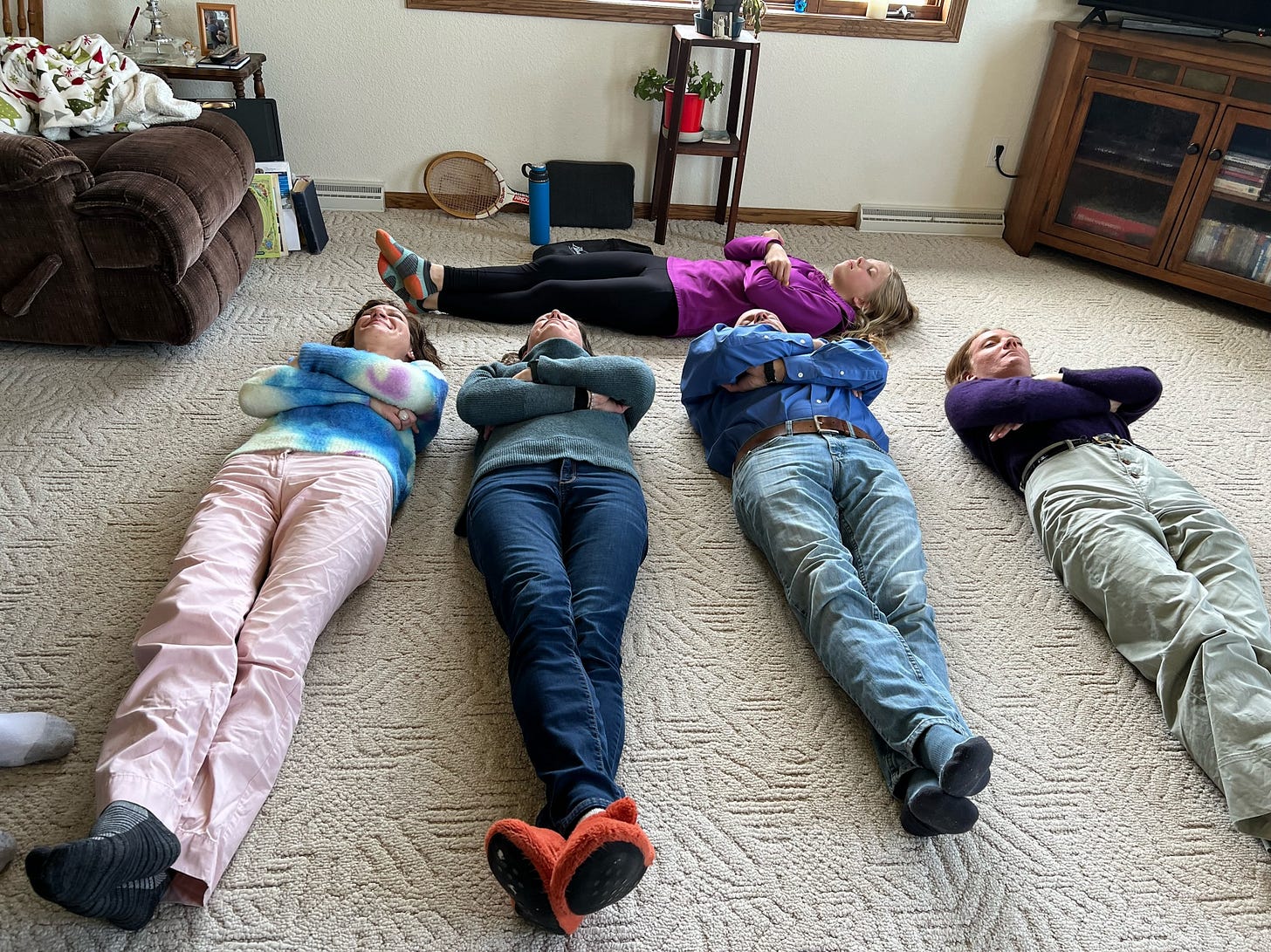
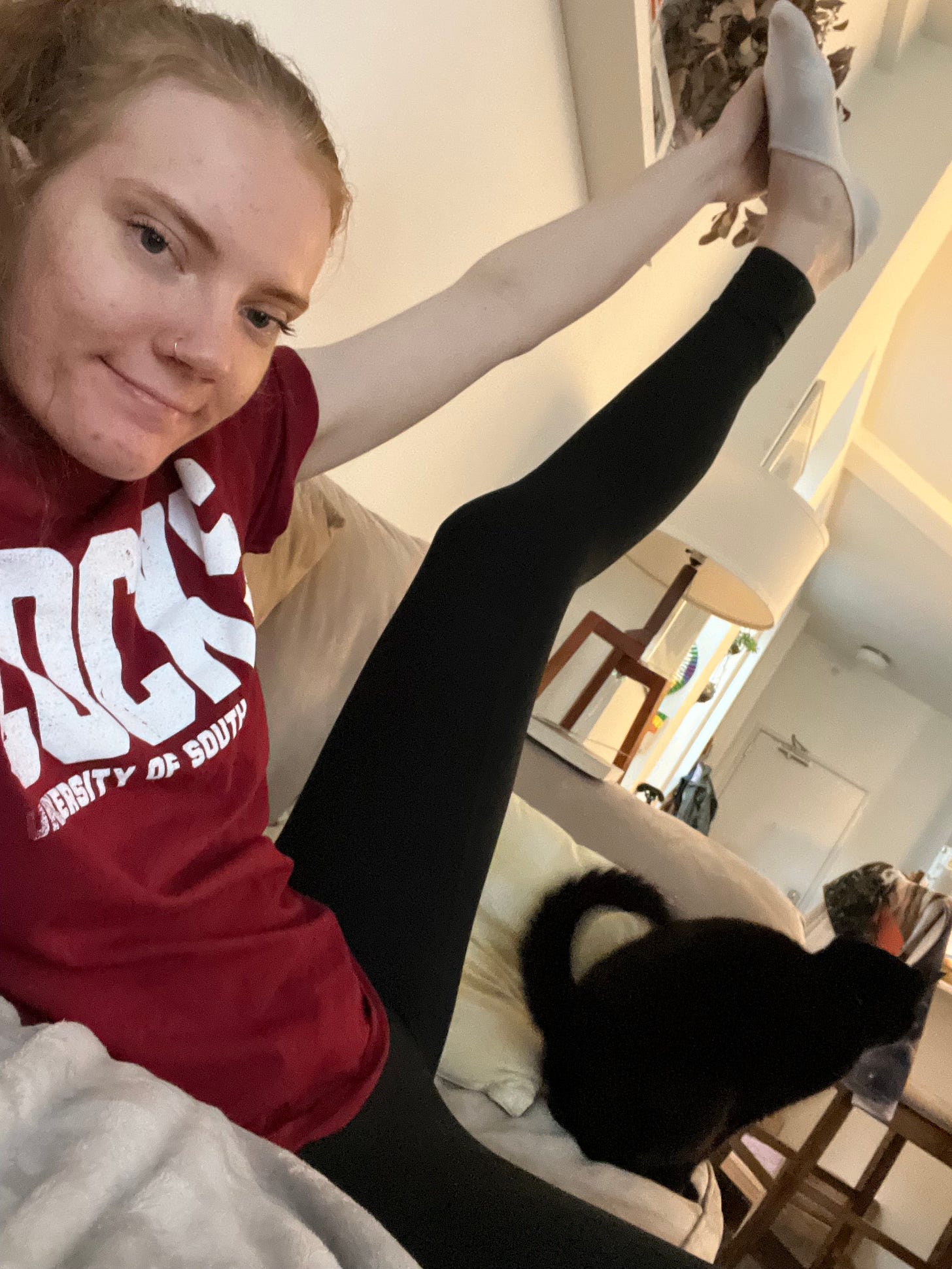
Thanks, as always, for being here. I will be back, as always, next Friday with more musings on the state of my life in general. In the meantime, consider subscribing, sharing this post, and buying my book (or leaving a review).
Until next week —





